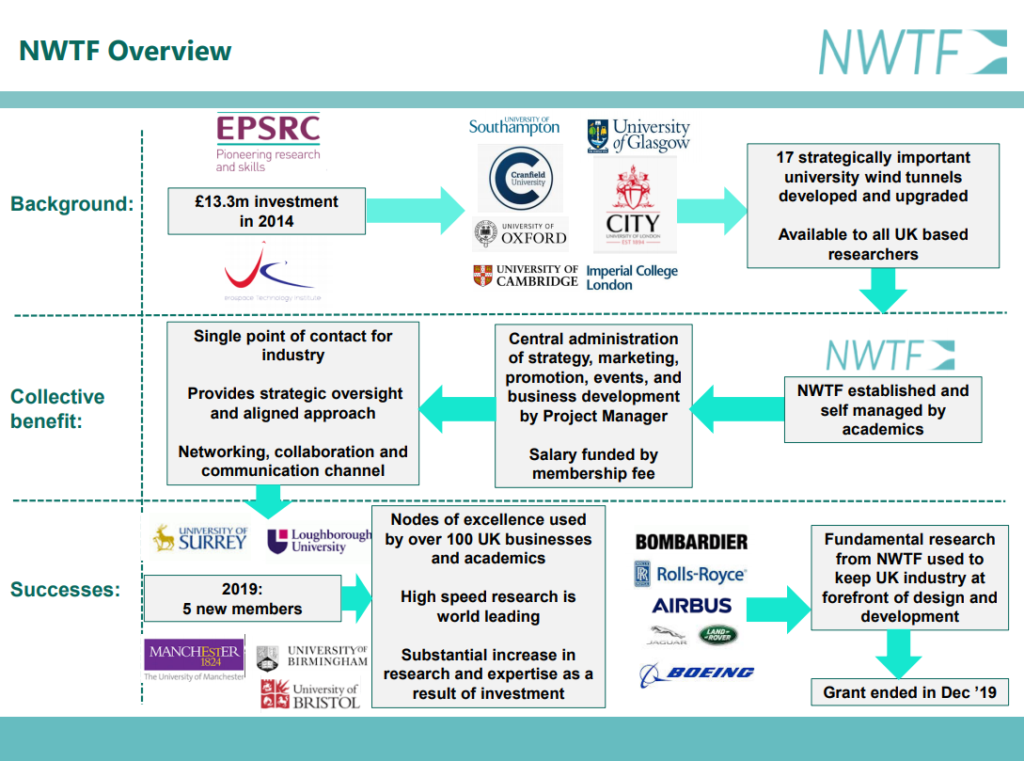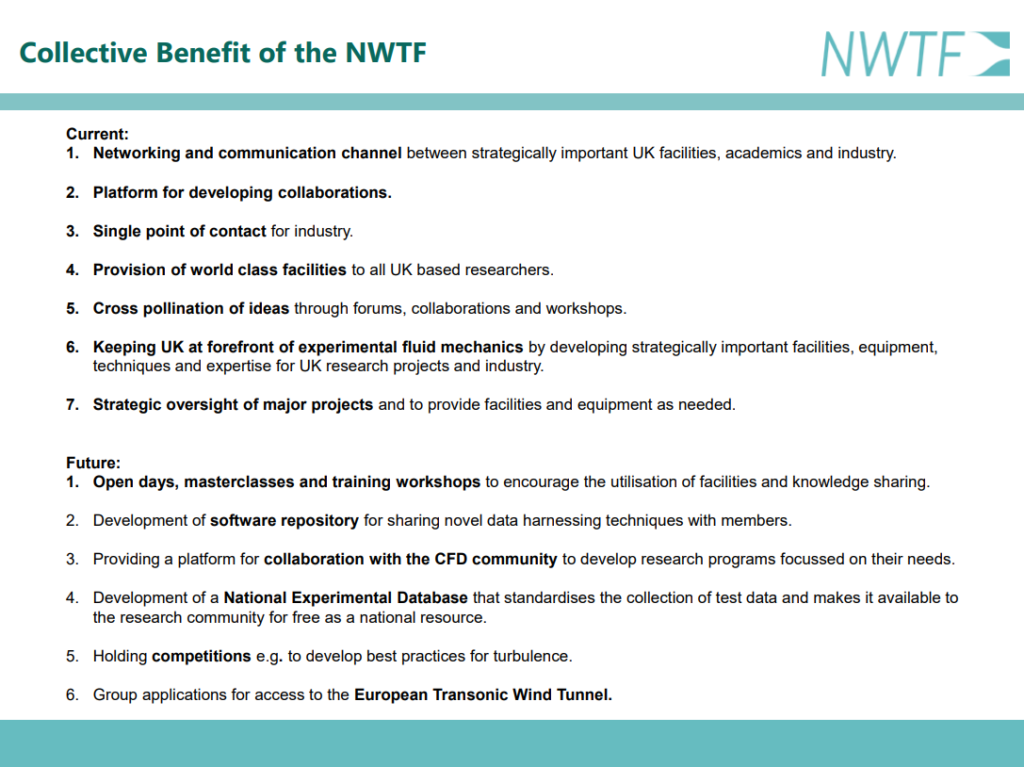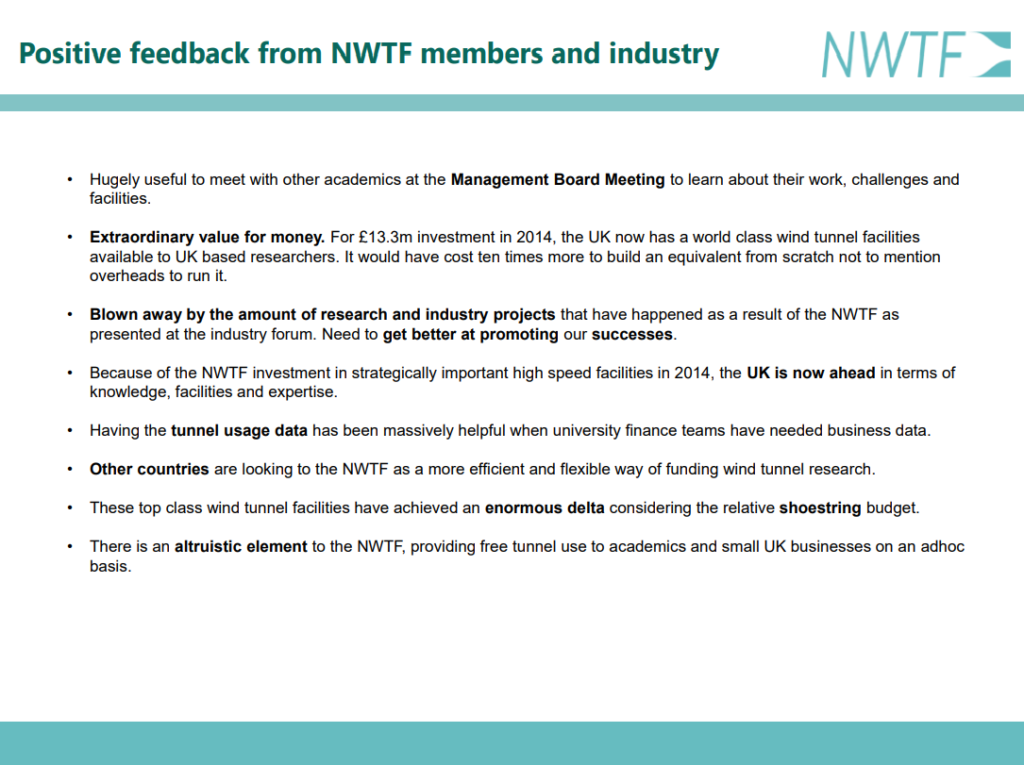Impact
Impact of initial investment:
The initial investment in 2014 has resulted in a huge step change. To date, hundreds of researchers, over 70 UK businesses, and 24 multi-institution projects have made use of the NWTF along with a 3x increase in PhD students, 5x increase in post docs, 40x more test days funded, 10x more tests in tunnels and double the number of research papers.
The NWTF ultimately underpins fundamental research impacting society, industry and infrastructure worldwide:
Birmingham: Crossrail tunnel design, HS2 tunnel certification, European TSI laws on railway systems.
Bristol: Aeroacoustics, passive and active noise abatement from engines and propellers.
Cambridge: Shock-wave / boundary-layer interaction.
City: Transition, instabilities.
Cranfield: Aircraft engine and wing design.
Glasgow: Helicopter rotor design.
Imperial College: Flow control for emissions reduction, fluid-structure interaction, machine & reinforcement learning (AI), turbulent mixing, shock-wave / boundary-layer interaction, transpiration cooling, tracking of Covid-19 flow.
Loughborough: Key player in supporting the UK automotive industry and leader in low speed tomographic PIV.
Manchester: High-speed flow feeding into hypersonic aircraft design and the future of nascent space tourism.
Oxford: High-speed flow, scramjet engine design and performance, and spacecraft aerothermodynamics and heat transfer.
Southampton: Aeroacoustics, autonomous vehicles and future water-craft design, drag reduction for emissions reduction.
Surrey: World leader in researching climate change and extreme weather events, mapping the performance of wind farms, bio-sensing chemical agents for security applications, reversing decline of Europe’s insect population and improving air quality and transport of pollutants.
The presentation below was shared with the Advisory Board in July 2020:


